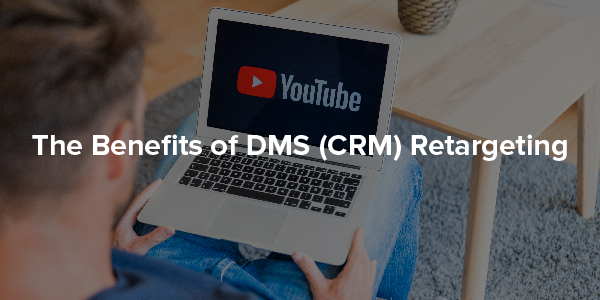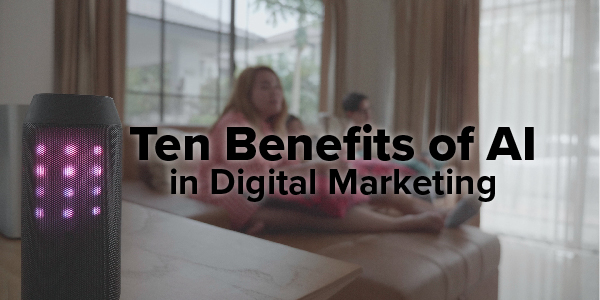AI, or Artificial Intelligence, is transforming the way businesses connect with consumers. It increases efficiencies, reduces wasted ad spend, and speeds up many different marketing processes to improve the customer experience and ultimately drive conversions.
While AI is complex, it has many benefits that any marketer would get behind. In fact, you may already be more familiar with it than you realize—online chatbots, Amazon’s Alexa, Apple’s Siri, automated phone operators, and even your recommended shows on Netflix—are all powered by AI.
There’s no reason to fear the adoption of AI, it’s already been working behind the scenes to improve the customer experience for years, and it isn’t going anywhere! If you’re not fully on the bandwagon yet, GSM is here to share some compelling reasons to consider implementing Artificial Intelligence to your marketing processes.
-
Enhanced personalization and recommendations
Personalized messages are no longer a luxury, they’re an expectation. In fact, a report by Accenture discovered that 41% of consumers switched brands due to poor personalization and a lack of trust, while 43% of consumers are more likely to purchase from companies that personalize the customer experience. Better yet, a whopping 91% of consumers are more likely to shop with brands who provide relevant offers and recommendations1—and that’s exactly what AI does.
Artificial Intelligence takes things father than traditional personalization, which typically targets groups of similar people. Instead, AI personalizes communications on an individual level creating a better customer experience. Using machine learning and the consumer’s past behavior, it can predict consumer behavior and deliver content that is most likely to convert a lead into a sale – at the best possible time. AI takes into consideration a consumer’s past purchases, the devices he or she uses, browsing history, downloads, product ratings, and much more to deliver the most relevant communications possible.
-
Dynamic Pricing
AI helps generate sales by dynamically setting the price of products based on factors such as their demand, availability, and the consumers’ profile. This helps businesses automatically adapt to fluctuations in the market and change pricing based individual consumer behavior. Ultimately, dynamic pricing can help you save ad spend over time and get the most out of your marketing budget.
-
Customer Service
Messaging apps like Facebook messenger help ensure your customers have a way to reach your business 24/7. Many companies use them to provide faster responses to customers or to deal with common questions they may have such as “Are you open on Sundays?”. Better yet, if a conversation is too advanced for the standard programmed replies, the chatbot can direct the conversation to a human agent. This helps save time and reduces the workload for human agents who deal with more complex and personal conversations.
Other examples of chatbots include virtual assistants like Siri, Google Assistant, Alexa, and Cortana. Advanced programs such as these make it possible for AI powered technology to replace human agents in customer service roles saving companies a lot of money.
-
PPC Ad optimization
AI algorithms automatically optimize ads depending on consumer interactions and conversions. This helps eliminate the time-consuming task of A/B testing a multitude of ad components such as the imagery, messaging, ad format, and ad placement. Google, for example, has released Responsive Search Ads and Google Smart Bidding to help advertisers drive optimal performance.
Artificial Intelligence also works magic on social networks by analyzing the accounts a user is following and showing ads that are relevant to his or her interests. Instagram is a great example of this strategy. Its “discover” feature gathers and displays content to a user based on the hashtags he or she follows, the accounts followed, and the posts he or she has liked. This connects users to new brands, businesses, and products that are all relevant to their interests.
-
SEO optimization
Google’s Search algorithms are constantly evolving to deliver the most relevant content to a user based on their intent. AI helps advertisers beat out the competition by analyzing the device a customer is on, as well as their intent based on browsing history, searches, and shopping behavior.
When using AI and its predictive analytics, you know your content will be relevant and adjusted as consumer intent changes. Considering Google’s emphasis on these two factors, this means your messaging has the best chance at being served to in-market consumers.
In part two, GSM covers the remaining five benefits that AI can bring to your digital marketing.
1 Accenture, 2018: Making it Personal










